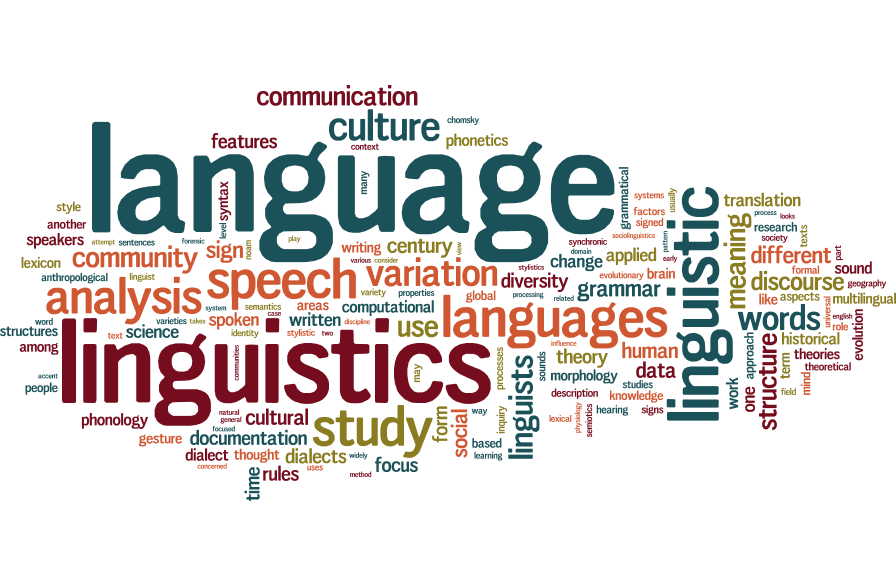LINGUISTICS
Course: LINGUISTICS
2024 / 2025
SEMESTER: ONE

Full name: Dr. Haroun MELGANI
Department of English, Faculty of Arts and Foreign Languages, Oum El Bouaghi University, Algeria
Email: melgani.haroun@univ-oeb.dz
CV: https://drive.google.com/file/d/1JLkKfgXPhfi32O_SAoq0gpcArMz4WNs9/view?usp=sharing
Course: Linguistics
Code UEF3.1
INSTRUCTIONAL OBJECTIVES: Students will be able to:
- Understand the concept of Sociolinguistics, its main theoretical tents and essential objectives
Demystify the basic constructs that pertain to Sociolinguistics, such as Vernacular, Speech community and Variability
Distinguish between Accents, Dialects, and Languages
Understand the main theoretical axioms of social dialectology
Understand how linguistic variation had been conceptualized and approached in early (oft-cited) classical research studies
Demystify the concepts of Sex and Gender and other Gender related constructs
- Understand how Gender is conceptualized and approached in Variationist Sociolinguistic inquiry
Demystify the basic constructs that pertain to Sociolinguistics, such as Vernacular, Speech community and Variability
Distinguish between Accents, Dialects, and Languages
Understand the main theoretical axioms of social dialectology
Understand how linguistic variation had been conceptualized and approached in early (oft-cited) classical research studies
Demystify the concepts of Sex and Gender and other Gender related constructs
This course overviews the relationship between language and society, foregrounding how languages and language varieties co-vary with different, interrelated, socio-demographic motives. The logic of this course builds from basic sociolinguistic notions, the construct of Variability and its sociolinguistic dimensions, to social dialectology and Gender-based linguistic variation. Each lesson contains Group and individual home assignments, group chats and YouTube videos about many language related issues. In order to reflect the socio-phonetic heterogeneity of speech, this course contains many ‘bona fide’ examples from various world language varieties and multilingual communities.
Target Group(s):

Third year Students, LMD
Speciality: English
Course Prerequisites:
Subjects/basic knowledge students must have acquired prior taking this course:
Formal Linguistics; Modern Linguistics; Chomsky's approach to Linguistics (UG, Linguistic Competence); Language Communication; Social Identity, Identity Construction.
Course Instructional Materials: PDF files, WORD texts, links, graphs, charts & Videos.
Pre-Test 1: http://tele-ens.univ-oeb.dz/moodle/pluginfile.php/125482/course/section/15992/ok%20%281%29.pdfPre-Test 2: http://tele-ens.univ-oeb.dz/moodle/pluginfile.php/125482/course/section/15992/ok%20%282%29.pdf
OUTLINE
LESSON 1/ WEEK ONE: An introduction to Sociolinguistics
LESSON 2/ WEEK TWO: Essential sociolinguistic Axioms
LESSON 3/ WEEK THREE: Traditional Dialectology (Part 1)
LESSON 3/ WEEK FOUR: Traditional Dialectology (Part 2)
LESSON 4/ WEEK FIVE: Basic Sociolinguistic Notions (Part 1)
LESSON 4/ WEEK SIX: Basic Sociolinguistic Notions (Part 2)
LESSON 5/ WEEK SEVEN: Social dialectology (Part 1)
LESSON 5/ WEEK EIGHT: Social dialectology (Part 2)
LESSON 6/ WEEK NINE: Gender based Language Variation (Part 1)
LESSON 6/ WEEK TEN: Gender based Language Variation (Part 2)
WEEK ELEVEN: TD TEST
EXTENDED OUTLINE:
...........................
Session Duration: 90 minutes
Evaluation:
This a list of books (introductory and advanced) and research articles that address several issues in Variationist sociolinguistics, Modern Linguistics and Geographical dialectology.

